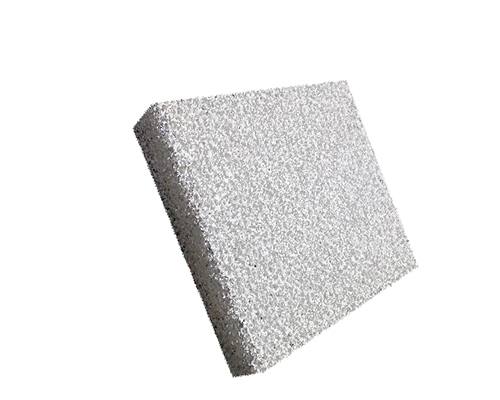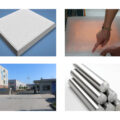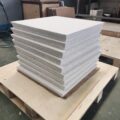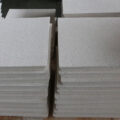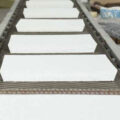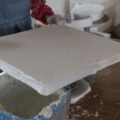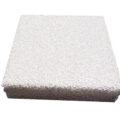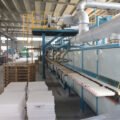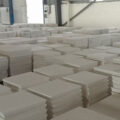Ceramic foam filters have become the most widely used filter material in the world’s aluminum industry, including Assan Alüminyum foundry.
Assan Alüminyum, one of the world’s leading manufacturers in the flat-rolled aluminum industry, has been producing coil & sheet, foil, and pre-painted aluminum products. High-quality ceramic filters play a very important role in improving the quality of the aluminum foil in Assan Alüminyum Foundry.
Tests have proved that liquid aluminum filtration can reduce the breakage rate of 6um thick aluminum foil by 44% during finishing rolling. The foam ceramic filter for Assan Alüminyum foundry is usually replaced once per heat to ensure the passing capacity of the molten aluminum, and prevent the debris and slag particles deposited in the pores from re-entering the molten aluminum.
The filtration efficiency of the foam ceramic board is directly related to the diameter of the micropores, but the diameter of the trapped debris is much smaller than the average diameter of the micropores. A filter plate with 12 holes/cm and a thickness of 50 mm can remove 80% of impurities such as slag over 100 um. In order to improve the filtration efficiency, the glass fiber mesh can also be used for coarse filtration, and then the foam ceramic board for fine filtration.
The existing filter size and porosity range can meet the casting requirements of all aluminum alloys. The ceramic foam filters use are simple and effective, with low cost, and are an effective method for removing non-metallic inclusions from molten aluminum.
The ceramic foam filter has a continuous network of pores, which are made by dipping the slurry, drying, and firing at high temperatures. A very large number of connected pores are evenly distributed throughout the filter material. When molten aluminum passes through these labyrinth-like tortuous paths, inclusions are adsorbed in the pores of the filter. However, it is important that the metal flow rate should be in the optimal range and the total effective filtration area can be fully utilized. If the material of the filter is uneven and there are broken holes, the flow rate of the metal through the filter will increase, which will make the inclusions unable to be completely captured, or the trapped impurities will be washed away.

